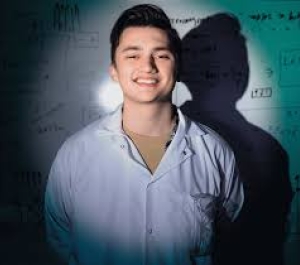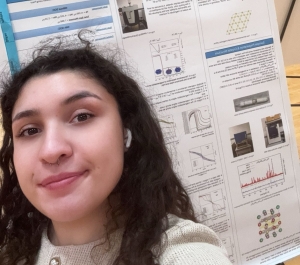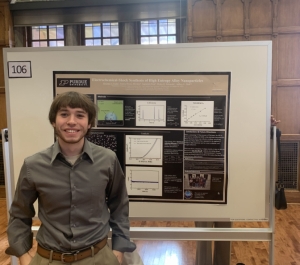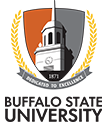
Christopher Burgio

Jemma DeFeo
My research experience started shortly after I transferred to Buffalo State. I joined the lab focused on tailoring magnetic topological phases in rare-earth based Kagome materials. I was intrigued by the idea of making a solid-state refrigerator with the permanent magnets produced in the lab. I’ve learned lots about magnetic properties of materials and lots of practical skills- mounting samples, conducting Hall Effect measurements, and using a PPMS. As a result of this lab, I have four publications and will get to go to a conference in Binghamton. My publication links:

Mike Vullo
I am a double major in Chemistry and Physics. I started doing research Sourav Biswas (in Buffalo State Chemistry) as a sophomore. After sophomore year, I did off-campus summer research as an REU participant at Purdue University. That summer, I studied the electrochemical synthesis of alloys, and the catalytic applications of the alloy nanoparticles in Dr. Jeffrey Dick’s lab. After junior year, I did another REU- this time at the University of Pittsburgh Chemistry, studying chirality induced spin selectivity under Dr. David Waldeck. I found the REUs particularly valuable. I met lots of grad students and post-docs who showed me what university research is like and that I could make it doing research. As part of my research, I contributed to two journal articles:
Faculty Research Profiles
Core Faculty
David Abbott, Instructional Support Specialist - Supervises Learning Assistantships and pedagogy.
Dermot Coffey, Professor - Research in theoretical solid state physics.
David Ettestad, Professor - Research in chaos theory and statistical mechanics theory.
Daniel MacIsaac, Chair and Professor - Studies the factors that influence the development of effective physics teachers. Dan also coordinates the M.S.Ed. (Physics) graduate programs for physics teachers.
Arjun Pathak, Professor - Investigates magnetic, electronic, thermodynamics, thermal, and electrical transport properties of various novel materials, including topological quantum materials, Skyrmions, magnetic Weyl semi-metals, half-metallic ferromagnets, caloric materials, permanent magnets, and 2D materials. He uses x-ray diffraction, electron microscope, Mössbauer spectroscopy, and physical property measurement systems (PPMS, DynaCool)
Ram Rai, Professor - Conducts experimental research on electronic and magnetic materials. He is particularly interested in thin films of complex oxides, and their investigation using different experimental techniques, including optical spectroscopy, resistivity, and dielectric measurements.

